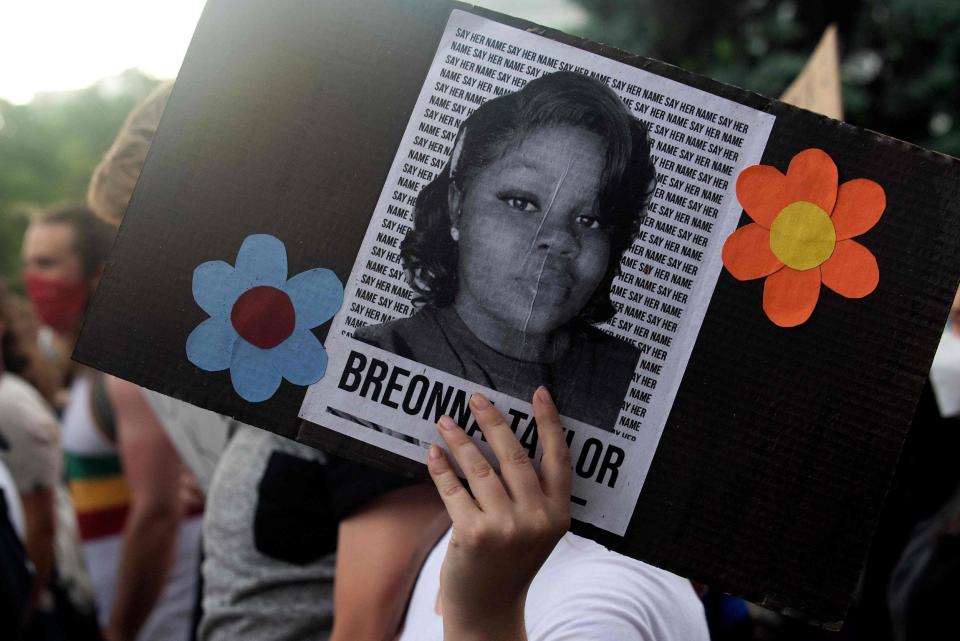Wanton endangerment in the first degree: The charge facing officer in Breonna Taylor case, explained

Detective Brett Hankison faces up to 15 years prison if found guilty on three counts of “wanton endangerment in the first degree”.
In announcing the indictment, Kentucky attorney general Daniel Cameron said the charges were for wantonly placing three people in a neighbouring apartment – not Breonna Taylor - in threat of serious physical injury or death.
According to Kentucky's legislation, a person is guilty of wanton endangerment in the first degree when: "Under circumstances manifesting extreme indifference to the value of human life, he wantonly engages in conduct which creates a substantial danger of death or serious physical injury to another person".
Under Kentucky law, wanton endangerment is a class D felony punishable by between one to five years prison for each count.
Please see the attached letter served to Detective Hankison this morning. We will have no additional statements on this matter. pic.twitter.com/XzAhEylEfk
— LMPD (@LMPD) June 19, 2020
"Detective Hankinson fired his weapon 10 times, including from an outside sliding glass door and through a bedroom window. Some bullets travelled through apartment four and into apartment three, before some exited that apartment," Mr Cameron said.
"At the time, three residents of apartment three were at home, including a male, a pregnant female, and a child. There's no conclusive evidence that any bullets fired from Detective Hankinson's weapon struck Ms Taylor."
Mr Hankison was fired from the city’s police department on 23 June, with a termination letter by Louisville police chief Robert Schroeder saying he violated procedures by showing “extreme indifference to the value of human life” when he “wantonly and blindly” shot 10 rounds.
In the letter, Mr Schroeder said Mr Hankison was unable to verify anyone as an immediate threat or an innocent person when he fired 10 rounds through a patio door and window.
“You further failed to be cognizant of the direction in which your firearm was discharged. Some of the rounds you fired actually travelled into the apartment next to Ms Taylor’s, endangering the three lives in that apartment,” Mr Shcoeder wrote.

